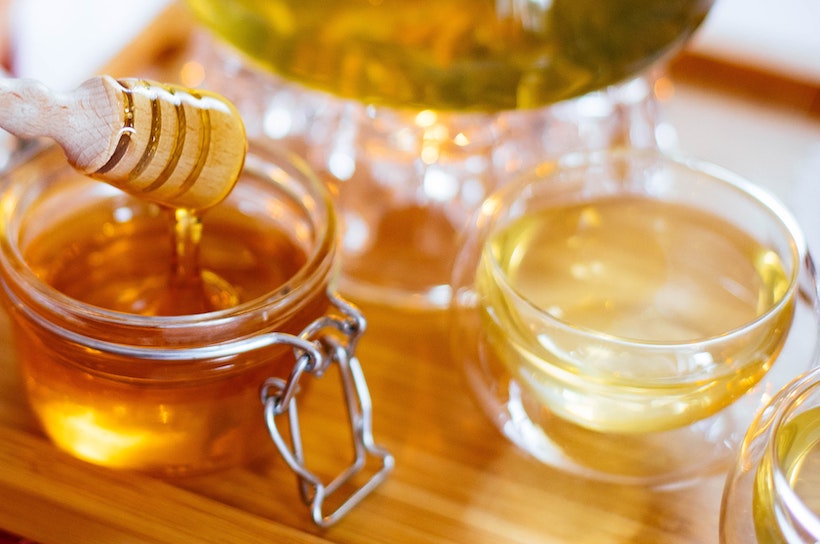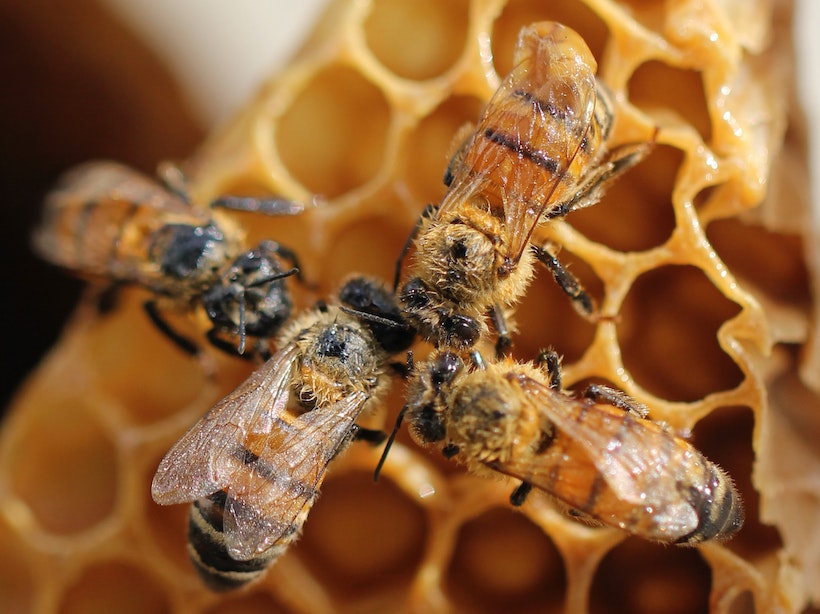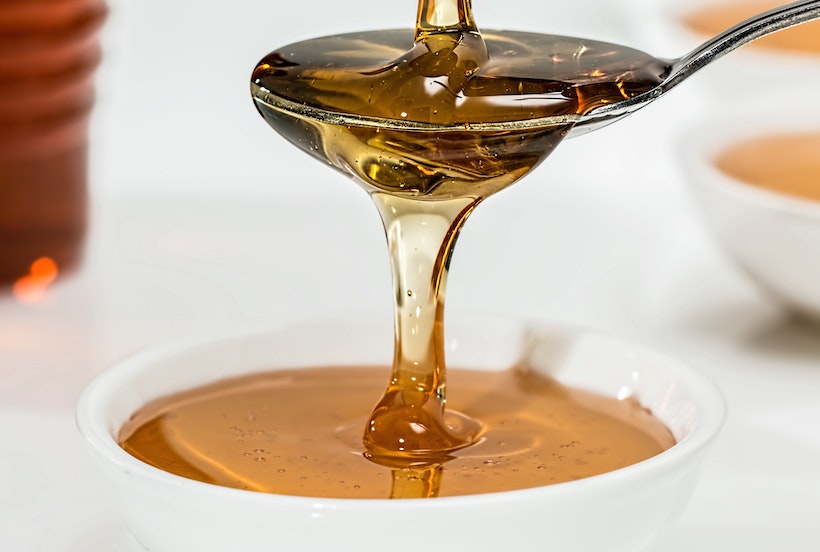Sometimes, it takes a deep dive into a food's health properties to satisfy the craving for knowledge for a food lover like me.
Honey is an exciting food and worthy of in-depth study. For starters, it's a proven antibacterial. Honey has been used in medicine for centuries, for example, to help heal pressure sores in hospitals.
In modern times, we've characterized and studied many more nutritional properties of honey. Today, there's ample evidence to claim honey can help maintain our immunity, slow down the aging process, and give us more get-up-and-go.
Let's dive into honey's antioxidant properties and look at some of the high-quality studies relating them to human health.

As humans, our bodies' healthy cells are always under threat from damaging compounds called free radicals. Free radicals are atoms or ions with extra unpaired electrons and are considered responsible for many disease processes.
Antioxidants play a role in fighting off free radicals. Antioxidants mop up free radical cells and slow down oxidative stress on the immune system. What is oxidative stress, though?
When free radical cells damage healthy cells, this process is called oxidative stress. It's responsible for biological aging and many diseases. Free radicals are caused by UV light, smoking, passive smoking, pollution, environmental stressors, and other byproducts of everyday life.
Oxidative stress occurs when there's an imbalance between the production of free radicals and antioxidants' availability to mop them up.
To limit their harm, make sure you eat plenty of fruit, vegetable, and plant foods, which can include – as you'll see – high-quality honey. All of these contain antioxidants.
There are thousands of antioxidants found in a variety of foods. The main types of antioxidants include polyphenols, phenolic acid, and flavonoids, plus others you know, such as carotenoids, selenium, vitamin C, and E. These antioxidants all have slightly different functions, but all help to balance the surplus of free radical cells. Let's go into detail into a few of them.
Vitamin C is a water-soluble antioxidant. It isn't stored or produced in the body, so you need to consume vitamin C in your diet.
This vitamin is believed to help prevent cancer, cardiovascular disease, eye degeneration, and – interestingly – colds. It wards off free radicals and is vital for collagen production. Vitamin C is also found in citrus fruits, strawberries, broccoli, peppers, and spinach.
Vitamin E is a fat-soluble antioxidant that can protect cell membranes from free radical damage and is found in kale, spinach, nuts, sunflower seeds, and tomatoes.
Polyphenols are micronutrients and antioxidants that help mop up harmful free radicals and protect our health from cell oxidization.
Phenolic acids are found in fruits and vegetables, as well as in our friend honey. Phenolic acids are reported to slow down aging, Alzheimer's, Parkinson's, and other diseases.
Although some manufacturers claim that the phenolic acid in their supplements confers beneficial properties, science suggests the evidence is mixed.
As you might expect, while honey is an excellent source of phenolic acids, some honey has a higher concentration than other types of honey. Scientists find Manuka honey, in particular, is an excellent source, with a higher level than many commercial varieties.
Other critical antioxidants are flavonoids. Flavonoids are found in fruit, vegetables, grains, wine, tea, and other substances – such as honey!
Flavonoids are particularly important because they:
Research has found that honey contains a high concentration of polyphenols and flavonoids. However, one study of honey from different plants found that honey from rhododendron and parsley had the highest phenolic content and antioxidant activity. Acacia and citrus honey contains the least.
It's varied whether a given type of raw honey has higher concentrations of antioxidants than other processed honey, but in general: the darker the honey, the higher the level.
According to Dr. May Berenbaum at Illinois University, some honey forms have as high a concentration of antioxidants as fruits and vegetables gram for gram. A tasty win for us!

As we discussed, there are many studies on the healing potential of honey. It has proven antibacterial properties and can help heal wounds, ulcers, and burns.
Studies tend to suggest that those who eat a diet rich in fruit and vegetables (therefore have a high antioxidant intake) have a lower risk of stroke, heart disease, cancer, and diabetes. Studies on specific conditions, however, are more varied.
For example, research suggests that a diet high in antioxidants (in other words, high in fruit and vegetables – and yes, honey) may help to protect from heart disease and cancer. Still, there is scant evidence suggesting that antioxidants can cure diseases once they've begun – although there is evidence that antioxidants are ameliorative for various illnesses.
So, let's take a look at the ways that the antioxidants in honey have been proven to help us humans with our health.
Honey contains phenolic compounds such as:
The concentration of these will depend on the location of bees and their flower sources. As I mentioned above, raw honey is an excellent source of phenolic acids – especially for particular types of honey (in particular like the Manuka mentioned above, as well as some Malaysian varieties such as Tualang).
While the effects of every phenolic compound and acid aren't fully characterized, they are known to be effective in preventing heart disease – and are also believed to be protective against cancer.
Natural honey was found to be effective in reducing cardiovascular disease risk in a sample of overweight or obese people compared to a control group who ate sugar.
As honey contains phenolic compounds, research suggests that honey may help to prevent certain cancers.
One study suggests that Greek thyme honey may help prevent breast, prostate, and endometrial cancer.
Other research found that manuka honey reduced tumors in mice when injected intravenously. Yes, a mouse study – but mammal studies give hope that we could eventually find comparable effects in humans.
Honey is known to activate an immune response in wounds due to its antibacterial properties, which is why honey was traditionally applied to wounds and pressure sores.
While further research is required, some studies suggest that honey can naturally help to balance homeostasis in the immune system.
There is a wide body of research dedicated to the effects of honey's antioxidants on various diseases.
The brain is particularly vulnerable to oxidative stress as it is comprised of proteins targeted by free radicals. Some studies suggest the antioxidant properties of honey might help slow cognitive aging.
Other diseases that honey might protect against range from high blood pressure to metabolic syndrome.
According to researchers at the University of Illinois, generally, the darker the honey, the higher the antioxidant content.
Natural honey contains a wide range of chemicals that are beneficial to health. It has also proven more effective in preserving meat than many other traditional preservation methods.
Honey has also been found to help improve anemia and even enhance bone growth in rodents.
Interestingly, a US study on honey and other sweeteners' antioxidant content found honey did not have the most antioxidants. The study measured antioxidant content using the Ferric-Reducing Ability of Plasma test.
The study found that refined sugar, corn syrup, and agave nectar had the least antioxidants (less than 0.01 mmol/ 100g)
Dark and blackstrap molasses had the highest concentration of antioxidants (4.6 to 4.9 mmol/100g).
Honey finished in the middle with a concentration of 0.2 to 0.7 mmol/100g. (Near maple syrup).
Don't look so disappointed! Honey is vastly superior to regular refined sugar for general health. Plus, many people add refined sugar to their hot drinks, so it is worth swapping it out for honey starting today.
You probably like the taste of honey better too – and sugar aside, when was the last time you added blackstrap molasses to your tea?

Research at the University of Illinois found that the flower source absolutely impacts a honey's concentration of antioxidants. According to the 1998 study, honey made from buckwheat in Illinois had 20 times the antioxidant level as that from bees that feed on California Sage.
Yes, it's true – too many antioxidants can be harmful to health. Many take antioxidant supplements to improve their health – and at high levels, this could be detrimental to health, particularly if you take too much vitamin A, E, or beta-carotene.
For one example, the beta-carotene and retinol trial was terminated early when observers discovered the smokers in the study who were taking beta-carotene and retinoid supplements started to develop lung cancer and die at a higher rate. And at high doses, vitamin E has adverse effects such as an increased risk of bleeding – and even stroke.
If you're looking to maximize your concentration of antioxidants in your honey, look for a raw, dark, and cloudier honey. If it's light-colored and clear, it has likely been filtered and pasteurized, losing some of the nutrients in the process.
If you're taking honey for its antioxidant content, also be sure to add plenty of fresh fruit and vegetables to your diet. There's generally no need to take additional antioxidant supplements if you're eating sufficient fresh fruit and veggies.
I need to mention here: if you're living with diabetes or are prediabetic, you should take care when eating honey. After all, honey is a sweetener – and although research shows that it is better than white sugar or corn syrup for people with diabetes, overconsumption can still be dangerous.
I hope you've enjoyed this dive into honey's antioxidant properties.
The bottom line: while there is still research to be done, we've learned quite a bit about honey in the last 20 years. Many studies suggest that the antioxidants in honey can help reduce the chance of disease, heal wounds, improve brain health, and confer loads of other benefits to human health.
But—even if you're not health-conscious—you should enjoy honey anyway. Let's be serious: it's delicious!